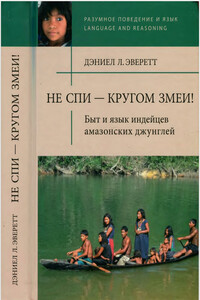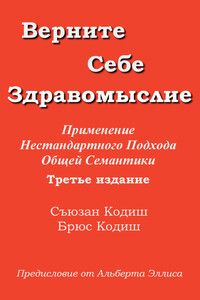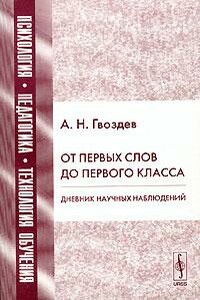Specific English. Грамматические трудности перевода - [43]
Г. 1. They never had become rich. But always, at the Marsh, there was ample. 2. Indeed it was strange to enter up that silent cove, protected by the green hill, in the still cool of the evening, and see there a sailing vessel. 3. The next day I took a local to the place where the mine was. 4. It irked him that even Ann did not treat Nancy Bowshott as an equal. 5. Now she was sitting behind closed doors with him and him alone, as the evening drew on, and hoping like a seventeen-year-old that perhaps he might invite her out to dinner.
II. Определите синтаксическую функцию выделенных наречий в следующих предложениях. Переведите эти предложения на русский язык.
А. 1. Tonight is important to me. 2. «What are you going to do,«he asked, «when you leave here?» 3. «You’re wrong there» I interrupted quickly. 4. In the ordinary way she would have been home at her apartment hours ago. But today had been exceptionally full, with two conventions moving in and a heavy influx of other guests. 5. My clear, surely you know Charleston! You’ve visited there. 6. I think I must find somewhere to sit. 7. Tomorrow’s St Stephen’s Day. 8. You have the effrontery to stand there telling me you’ve sold elsewhere! 9. Tonight was different. 10. I’d like to leave here no later than Thursday night. 11. «Where was his parish?» «Concepcion [12] and the villages around. But he left there years ago.» 12. Ashley was acting as if he thought she was just flirting with him. But he knew differently. 13. You grow up like your father. Try to be just like him, for he was a hero and don’t let anyone tell you differently. 14. That would be all they needed to know until such an evil day when they might find out differently. 15. It’ll be interesting to see what abroad’s really like. 16. He missed the absence of the outback, the absence of a totally untamed beyond. 17. He raised his hands awkwardly and lifted the hair back over her brow, to reveal her bland and smiling beneath. 18. It was as if she were perpetually haunted and mocked by a music of happiness which came from some inaccessible elsewhere. 19. He was as fit as a fiddle when he left here. 20. There is nowhere else for them to work. 21. It was hard to reconcile herself to the fact that she had nowhere to go. 22. Fortunately we had not that far to go.
Б. 1. He was shorter than Leamas remembered him; otherwise, just the same. 2. Anger had always come easily – except for those few brief years when Hester had taught him otherwise: to use patience and a sense of humour. 3. Call me if there’s anything new that’s important. Otherwise I’ll be in touch with you. 4. At eighteen Andrew found himself alone, carrying a scholarship worth 40 pounds a year, but otherwise penniless. 5. Aunt Pitty knew nothing about men, either with their backs up or otherwise, and she could only wave her fat little hands helplessly. 6. She knew perfectly well that airlines never prosecuted stowaways, on the theory that publicity would be more harmful than otherwise. 7. «I’ve no luggage,«Leamas replied, «except a tooth-brush and а тают.» «That is taken care of. Are you ready otherwise?» 8. «What’s his hame?» «Finegan. He’s acting chief (замещает заведующего). Our regular chief is otherwise engaged.» 9. The reason he had stayed, through most of the three-day storm, was to be available for emergencies. Otherwise, by now he would have been home with Cindy and the children. 10. Briefly, the policeman seemed ready to vent his own anger, then decided otherwise. 11. He would have preferred to have the note, but to insist would raise an issue, emphasising the incident, which otherwise might be forgotten. 12. She had been perfectly happy in her way, and it was pure sentimentality to wish that her way had been otherwise. 13. She hoped everything would work out that way because it would be more difficult otherwise.
B. 1. I am so glad to have you with us. 2. You saw most of the places that tourists usually see. So this year you want a rest from sightseeing. 3. All the shops are closed and so are the theatres and most of the cinemas. 4. I may even get to be an airline vice-president. You just said so. 5. «Tell me, is it true? Are the Yankees coming?» «I’m afraid so.» «Do you know so?» «Yes, Ma’m. I know so.» 6. You say you wish to meet and make friends with as many people as possible, so I won’t suggest a quiet fishing village. 7. «Who was it said all men are equal, Anne? Do you remember?» «Has anyone ever said so?» 8. Warren Trent lit a cigar, motioning to McDermott to take a cigarette from a box beside him. When he had done so, Peter said… 9. Until the war, life was never more real to me than a shadow show on a curtain. And I preferred it so. 10. It was a safe bet, Mel thought, that Cindy had been more than usually snippy with Danny, but, loyally, he wasn’t saying so. 11. The planes had been close, exceptionally so, and for an instant his flesh had prickled with alarm. 12. That so many had turned out at all on such a night, leaving warm houses to do so, spoke eloquently of their concern. 13. Her father gave us this house as a wedding present, so we haven’t to pay the rent. 14. «No smoking in here,«the girl said. «Who said so?» said Julian. 15. They were selling papers right in the Bellevue-Stratford. They were so. 16. «He’ll be ruined.» «I don’t think so.» 17. I could see that the big man opposite me was trying to stop him; but he evidently held the old gentleman in considerable respect and could not venture to do so at all abruptly. 18. But she knew too well that it was her nature, she was born so and she must make the best of it.

Эта книга – не очередной учебник английского языка, а подробное руководство, которое доступным языком объясняет начинающему, как выучить английский язык. Вы узнаете, как все подходы к изучению языка можно выразить в одной формуле, что такое трудный и легкий способы учить язык, почему ваш английский не может быть «нулевым» и многое другое. Специально для книги автор создал сайт-приложение Langformula.ru с обзорами обучающих программ, словарем с 3000 английских слов и другими полезными материалами.

«Не спи — кругом змеи! Быт и язык индейцев амазонских джунглей» (2008) — рассказ Дэниела Эверетта о его жизни среди индейцев народности пираха в джунглях Амазонии. Молодой лингвист и миссионер отправился в Бразилию со всей семьей, чтобы перевести на язык пираха Библию и обратить индейцев в христианство. Пираха не отмечают смену дня и ночи и не знают частной собственности, в их языке нет числительных, устоявшихся цветообозначений, понятий «право» и «лево» и сложных предложений. Общение с пираха, интерес к их образу жизни, культуре и языку полностью изменили представления Эверетта о науке и религии.

В книге рассказывается история главного героя, который сталкивается с различными проблемами и препятствиями на протяжении всего своего путешествия. По пути он встречает множество второстепенных персонажей, которые играют важные роли в истории. Благодаря опыту главного героя книга исследует такие темы, как любовь, потеря, надежда и стойкость. По мере того, как главный герой преодолевает свои трудности, он усваивает ценные уроки жизни и растет как личность.

В книге рассказывается история главного героя, который сталкивается с различными проблемами и препятствиями на протяжении всего своего путешествия. По пути он встречает множество второстепенных персонажей, которые играют важные роли в истории. Благодаря опыту главного героя книга исследует такие темы, как любовь, потеря, надежда и стойкость. По мере того, как главный герой преодолевает свои трудности, он усваивает ценные уроки жизни и растет как личность.

«Верните Себе Здравомыслие» – это книга, которая объясняет базовые положения общей семантики более простым, кратким и доступным языком в сравнении с 900-страничной формулировкой Альфреда Коржибски – Science and Sanity, а также даёт множество полезных и простых рекомендаций для практики и применения принципов Общей Семантики в повседневной жизни. Рекомендована к прочтению всем интересующимся данной дисциплиной, а также тем, кто желает приобрести новые навыки решения жизненных проблем. Третье издание.

В книге рассказывается история главного героя, который сталкивается с различными проблемами и препятствиями на протяжении всего своего путешествия. По пути он встречает множество второстепенных персонажей, которые играют важные роли в истории. Благодаря опыту главного героя книга исследует такие темы, как любовь, потеря, надежда и стойкость. По мере того, как главный герой преодолевает свои трудности, он усваивает ценные уроки жизни и растет как личность.